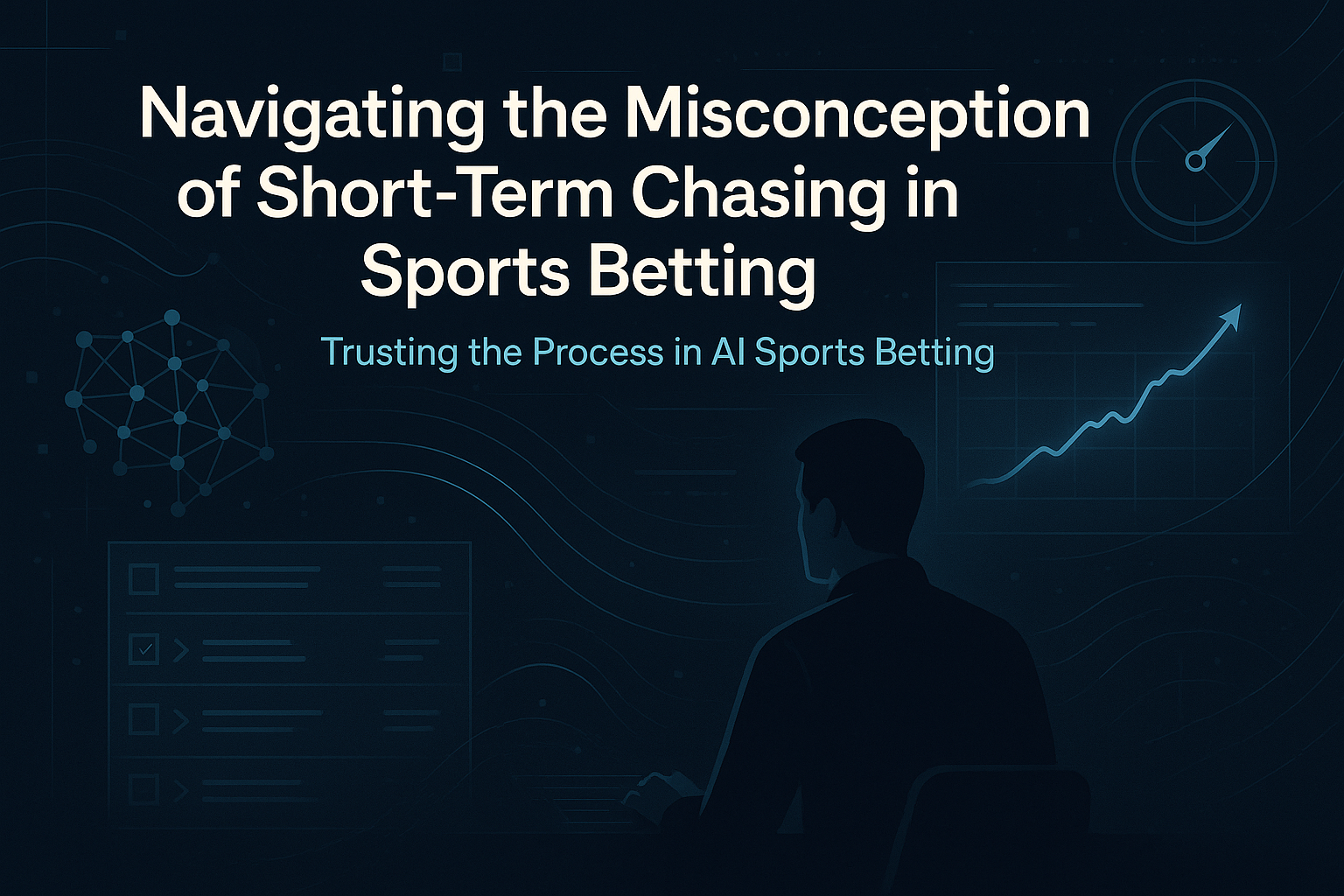Problem: The Hidden Challenge of Chasing Short-Term Wins
For many sports bettors, the thrill of the game often leads to a dangerous mindset: the pursuit of immediate success. This short-term chasing can manifest in various ways, from increasing wager sizes after a win to attempting to recover losses through reckless betting.
Unfortunately, this approach can obscure the true nature of successful betting—a long-term strategy built on solid data and consistent practices. Bettors often overlook the importance of treating their betting activities as part of a larger process instead of merely a sequence of isolated events.
Mechanism: How Short-Term Chasing Unfolds
Consider the scenario of a bettor named Alex. After starting with a modest bankroll, Alex has a successful streak early in the season, winning several bets. With confidence skyrocketing, Alex starts increasing bet sizes, convinced that the luck will continue. However, after a few losses, Alex begins to feel the pressure. In an attempt to recoup losses, Alex ignores pre-established strategies and starts making impulsive bets based on gut feelings.
This scenario highlights a common failure: the lack of a consistent approach leads to a downward spiral, diminishing bankroll and engagement with the betting process. Instead of following a disciplined strategy, bettors can easily fall into the trap of chasing losses, often resulting in making poor decisions based on fleeting emotions.
Solution: Embracing a Data-Driven Approach
The antidote to the dangers of short-term chasing lies in embracing a data-driven approach. By utilizing statistical analysis and historical performance data, bettors can separate noise from genuine insights. Advanced AI models can analyze vast amounts of data to inform betting decisions rather than relying on the whims of recent outcomes.
For instance, an AI model might identify a particular football team as having consistently strong performance against a specific opponent across multiple seasons, even if recent matches have shown a dip in form. This deeper analysis fosters a sense of trust in systematic betting rather than momentary successes or losses.
Strategy: Practical Takeaways for Bettors
To combat the tendency to chase short-term results, here are a few actionable strategies that bettors can employ:
- Set Long-Term Goals: Rather than fixating on short-term outcomes, define success in terms of long-term performance metrics, such as ROI or profit margin over a season.
- Adopt a Robust Analysis Framework: Leverage tools that provide insights into player performance, team matchups, and betting trends to base decisions on data instead of emotions.
- Track Your Betting History: Maintain a record of all bets placed, including rationale, stakes, and outcomes. Analyzing this data can help identify patterns and refine strategies over time.
- Practice Patience: Understand that betting is a marathon, not a sprint. Resist the urge to chase losses, focusing instead on well-researched wagers that align with long-term profitability.

